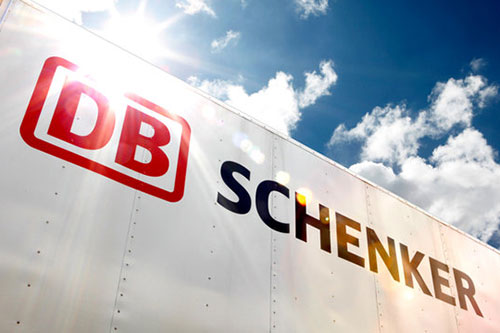DSV Acquires DB Schenker Amid Industry Consolidation
12th September 2024

In a major industry shake-up, DSV has acquired DB Schenker, positioning itself as a major player in global logistics. This acquisition enhances DSV’s capabilities in European land transport and rail freight, aligning with the industry’s shift towards multimodal solutions and sustainability. The deal reflects a trend of consolidation, with logistics companies like CMA CGM and Kuehne+Nagel expanding their operations. As DSV integrates DB Schenker, it will face challenges in streamlining operations, but the combined entity will offer more competitive, efficient supply chain solutions globally.
In a major industry shake-up, DSV has acquired DB Schenker for a transaction valued at EUR 14.3 billion at enterprise value, positioning itself as a leading global logistics provider. This acquisition significantly enhances DSV’s capabilities, particularly in European land transport and rail freight, aligning with the industry’s shift towards multimodal solutions and sustainability. The combined entity is projected to have pro forma revenue of EUR 39.3 billion (based on 2023 figures) and a workforce of approximately 147,000 employees across more than 90 countries. This deal reflects a trend of consolidation, as logistics giants like CMA CGM and Kuehne+Nagel expand their global operations. As DSV integrates DB Schenker, it faces operational challenges, but the merged company is poised to offer more competitive and efficient supply chain solutions globally.
Strategic Importance
This acquisition strengthens DSV’s market position by adding DB Schenker’s extensive European network to its global operations. DB Schenker is a leader in land and rail transport, making DSV more competitive in Europe and enhancing its multimodal offerings at a time when sustainability and efficient transport are in high demand. With the logistics industry focusing more on green logistics, DSV can leverage DB Schenker’s rail freight expertise to offer environmentally friendly solutions across Europe. According to Jens H. Lund, Group CEO, DSV, the acquisition is a “transformative event” that will create a “world-leading transport and logistics powerhouse” and improve competitiveness across DSV’s divisions—Air & Sea, Road, and Solutions.
Competitive Landscape
The acquisition highlights the growing consolidation in logistics as major players like DSV seek to scale their operations. The deal follows similar moves by competitors such as CMA CGM’s acquisition of Bolloré Logistics and Kuehne+Nagel’s digital expansions. With customers increasingly demanding integrated, end-to-end supply chain services, DSV’s expanded footprint and service capabilities position it well to compete with rivals like DHL and Kuehne+Nagel in offering seamless logistics solutions across regions and transport modes.
Challenges and Integration
Despite the opportunities, DSV faces significant integration challenges, particularly with DB Schenker’s vast operations. Successfully merging technology, workforce, and operational standards will be key to realizing the full benefits of the acquisition. However, DSV has demonstrated its ability to handle such integrations, as seen with the Panalpina merger in 2019. The company is expected to focus on optimizing its services, reducing operational costs, and enhancing efficiency to improve competitiveness in an increasingly digital logistics environment.
Future Outlook
This acquisition will likely accelerate consolidation in the logistics industry as companies seek to expand their reach and enhance service offerings. The global logistics market is increasingly focusing on sustainability, operational efficiency, and innovation. DSV’s acquisition of DB Schenker positions the company to lead in this evolving landscape, offering comprehensive and sustainable supply chain solutions. As DSV integrates DB Schenker’s resources and expertise, it will play a pivotal role in shaping the future of global logistics, driving higher standards of service and operational efficiency.

